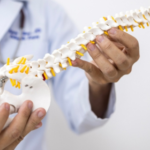Breast MRI (Magnetic Resonance Imaging) is a powerful diagnostic tool used to create detailed images of the breast tissue. While mammography and ultrasound are commonly used for breast imaging in Boise, a breast MRI is recommended in specific situations where these methods might not provide enough information. Here are the key circumstances when a breast MRI is recommended:
High-Risk Screening
For women at high risk of developing breast cancer, a breast MRI is often recommended as a screening tool in addition to mammography. High-risk factors include a strong family history of breast or ovarian cancer, genetic mutations such as BRCA1 or BRCA2, or a personal history of breast cancer. The MRI’s high sensitivity makes it particularly effective in detecting cancers that may not be visible on mammograms, especially in dense breast tissue.
Evaluation of Abnormalities
If a mammogram or ultrasound detects abnormalities that are not clearly defined, a breast MRI can provide more detailed images to further evaluate these findings. This is particularly useful in distinguishing between benign (non-cancerous) and malignant (cancerous) lesions, helping to avoid unnecessary biopsies or surgeries.
Pre-Surgical Planning
For patients already diagnosed with breast cancer, a breast MRI is often recommended to assess the extent of the disease more accurately. It helps in determining the size of the tumour, the presence of multiple tumours, and whether the cancer has spread to the chest wall or lymph nodes. This information is crucial for planning surgery and other treatments, such as radiation or chemotherapy. So, don’t hesitate to get the help you need in such cases.
Monitoring Treatment Response
During and after breast cancer treatment, a breast MRI can be used to monitor the effectiveness of the treatment. It helps in evaluating how well the tumours is responding to chemotherapy or other therapies, ensuring that the treatment plan is effective or if adjustments are needed.
Implant Evaluation
Women with breast implants, particularly those experiencing symptoms or complications, may undergo a breast MRI to evaluate the integrity of the implants. MRI is the most sensitive imaging modality for detecting implant ruptures or leaks and can provide clear images of the surrounding breast tissue for any abnormalities.
Dense Breast Tissue
For women with very dense breast tissue, where mammograms are less effective, a breast MRI may be recommended. Dense tissue can mask tumours on mammograms, and MRI’s ability to differentiate between different types of tissues can significantly enhance detection rates.
Breast MRI is a valuable tool in the diagnostic arsenal for breast health, recommended in specific scenarios where its high sensitivity and detailed imaging capabilities provide critical information. In this regard, consulting with a healthcare provider can determine if a breast MRI is appropriate based on individual risk factors and medical history.














